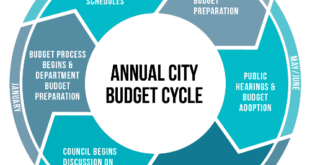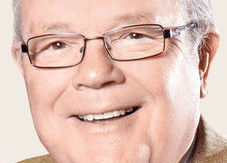By Peter Wagner
Local and even metro newspapers print very few new or used car display ads anymore. Automotive advertising, once a huge part of every paper’s revenue, has all but disappeared.
Even those multi-page metro paper weekend automotive sections, packed full of car and truck feature stories and loaded with ads from every area dealer, have mostly disappeared.
 Those weekly sections — and the used-car ads published throughout the week — helped hundreds of local families make personal automotive purchasing decisions every week.
Those weekly sections — and the used-car ads published throughout the week — helped hundreds of local families make personal automotive purchasing decisions every week.
Automobile advertising also was a major revenue source for community and metro publications. Car ads produced necessary income needed to underwrite the paper’s salaries, make it possible to pay the newsprint and ink vendors and to pay local utility bills and property taxes.
But automotive advertising — even simple used car listings — are absent from the majority of today’s print publications. Not because local dealers were unhappy with the results they were getting but because the automotive manufacturing companies decided they wanted all their dealers promoting themselves exclusively on the internet. So, almost like they pre-agreed on the date to do it, the Big Three and other car and truck manufacturers stopped providing their traditional 50 percent “co-op” portion of the cost of all print ads. Instead, they told their dealers, they’d only pay for ads on the internet.
But who benefits by that? Certainly not the local franchise dealer. Every time he turns to the internet to list his inventory and boast of his unique services and values he sends his message far beyond the local market and off into an unknown that includes at least three North American countries if not the entire world.
The question is, however, how many buyers from Oregon or Maine are going to want to buy a vehicle from Kansas, Iowa or South Dakota. Just the logistics of getting it delivered make it difficult and expensive.
Plus, where does the buyer turn when the car needs service or guaranteed maintenance?
But most important of all, by advertising exclusively online — as some car manufacturers are requiring — the small community local dealer is putting his smaller inventory selection up against the promises and almost endless inventory of huge corporate groups with sales offices located in cities across America.
How can a local dealer stand up head-to-head against multi-line, multi-location competition stocking every model in every color and with every conceivable option?
But while small dealerships can easily get lost among the internet wheeler-dealer promotions online, they easily stand out in their local paper. There, they don’t have to worry about being undersold by a distant operation with sometimes questionable ethics. In the hometown paper they reach a market that knows, trusts and admires them and all they mean to the local community. Local buyers recognize the hometown dealer’s commitment to service and to maintaining a continued relationship.
When clearly advertised in a local publication, free from long-distance hoopla and promises. the dealership’s message stands out for all to see.
If local dealers continue to listen to the car maker’s command to only advertise on the world wide web we could eventually see all vehicles sold direct to the buyer by the manufacturer. Buyers would order online and a transport truck eventually would deliver the vehicle to their driveway.
Still the automotive industry isn’t the only one forcing dealers to advertise on the internet.
Recently I visited with a local Hunter-Douglas dealer about advertising in my N’West Iowa REVIEW.
“The problem,” said the dealer who has advertised with me regularly for years, “is Hunter-Douglas told us this year they will only help pay for ads on the internet.”
The dealer went on to say he was upset with the change since he knew our five-county area was still committed to reading newspapers.
“Worse than that,” I reminded him, “the manufacturer is using your money to teach buyers to buy factory direct online. Manufacturers can easily copy a local dealers email mailing list when the dealer promotes a sale or new item. Eventually they could eliminate local dealers completely.”
Internet shopping, a blessing to some, can be a major problem to others. Even the major box stores, so popular just a few years ago, are falling victim to digital sales today. Sioux Falls, S.D., a town of 180,000 and long-time regional shopping center, saw the closure of two of four of the anchors in its multi-wing mall this past month. The closings were attributed to the nation’s increased buying on-line.
Finally, the trend to internet shopping and digital advertising is hurting the economy of even the largest communities.
The loss of sales tax dollars and the reduction of the number of visitors who buy locally produced items, attend movies, concerts and ballgames and eat at local restaurants is cutting into the local government’s ability to maintain infrastructure, let alone grow. Maintaining an active Main Street can make the difference in remaining a vibrant community and becoming a ghost town.
The internet will be a strong part of the future — worldwide. And there is a role for internet shopping and even internet advertising. But all things come around and there also always will be a place for the printed publication. The community newspaper still remains the best way to reach the greatest number of residents in a community at the cheapest per-individual cost. More importantly, the printed word continues to be the best way to create consensus in any community.
 Nevada Press Association The best in Nevada journalism since 1924
Nevada Press Association The best in Nevada journalism since 1924




